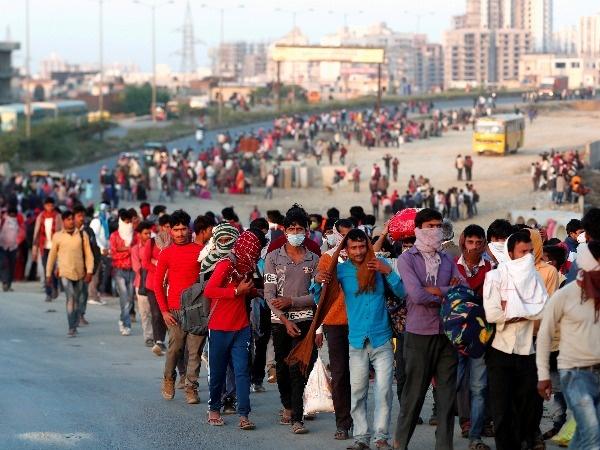The more contagious COVID-19 variant spreading in India is contributing to the country’s vicious second wave of infections, the World Health Organization’s top scientist said Saturday.
Soumya Swaminathan, an Indian pediatrician, and clinical scientist said the epidemiological features observed in India today do indicate that it’s an extremely rapidly spreading variant.
India on Saturday registered a record high than 4,187 new COVID-19 deaths in the last 24 hours, and over 400,000 new infections.
India’s capital New Delhi is struggling to battle the surge of infections that has overwhelmed its healthcare system.
Many experts suspect the official death and case numbers are a mere fraction of the real numbers.
RELATED STORY: Two Filipino seafarers in critical condition due to COVID-19 from India evacuated to PH
Swaminathan, told AFP that B.1.617 variant of COVID-19, which was first detected in India last October, was undeniably contributing to the catastrophe unfolding in her homeland.
“There have been many accelerators that are fed into this,” she said adding that “a more rapidly spreading virus is one of them”.
The WHO recently announced that the new variant spreading in India is a “variant of interest”.
While the WHO stopped short of adding it to its shortlist of “variant of concern” several countries including the United States and Britain, listed the B.1.617 as a variant of concern.
Swaminathan believes that the B 1.617 variant is likely to be a variant of concern due to mutations that increase its spread and potentially could make it resistant to vaccines against COVID-19.
However, she insisted that the variant alone could not be blamed for the dramatic surge in cases and deaths seen in India stressing that the South Asian country was complacent by allowing “huge social mixing and large gatherings.”
“In a large country like India, you could have transmission at low levels, which is what happened for many months,” Swaminathan said.
The WHO scientist said the new variant is endemic and probably gradually increasing lamenting that the country missed the early signs.
READ ON: India exceeds record of 4,000 deaths in past 24 hours due to COVID-19
“At that point it’s very hard to suppress, because it’s then involving tens of thousands of people and it’s multiplying at a rate at which it’s very difficult to stop,” she said.
Vaccines may not be enough
Swaminathan warned that the vaccines alone would not be enough to address the unprecedented surge of infections.
“It’s going to take many months if not years to get to the point of 70 to 80 percent coverage,” she said noting that India was only able to fully-inoculate two percent of its 1.3 billion population.
Swaminathan warned that exploding infection numbers dramatically increase the possibility of new and more dangerous variants to develop.
“The more the virus is replicating and spreading and transmitting, the more chances are that… mutations will develop and adapt,” Swaminathan said.
She furthered that new coronavirus variants which accumulate a lot of mutations may ultimately become resistant to the vaccines currently available. (RA)




